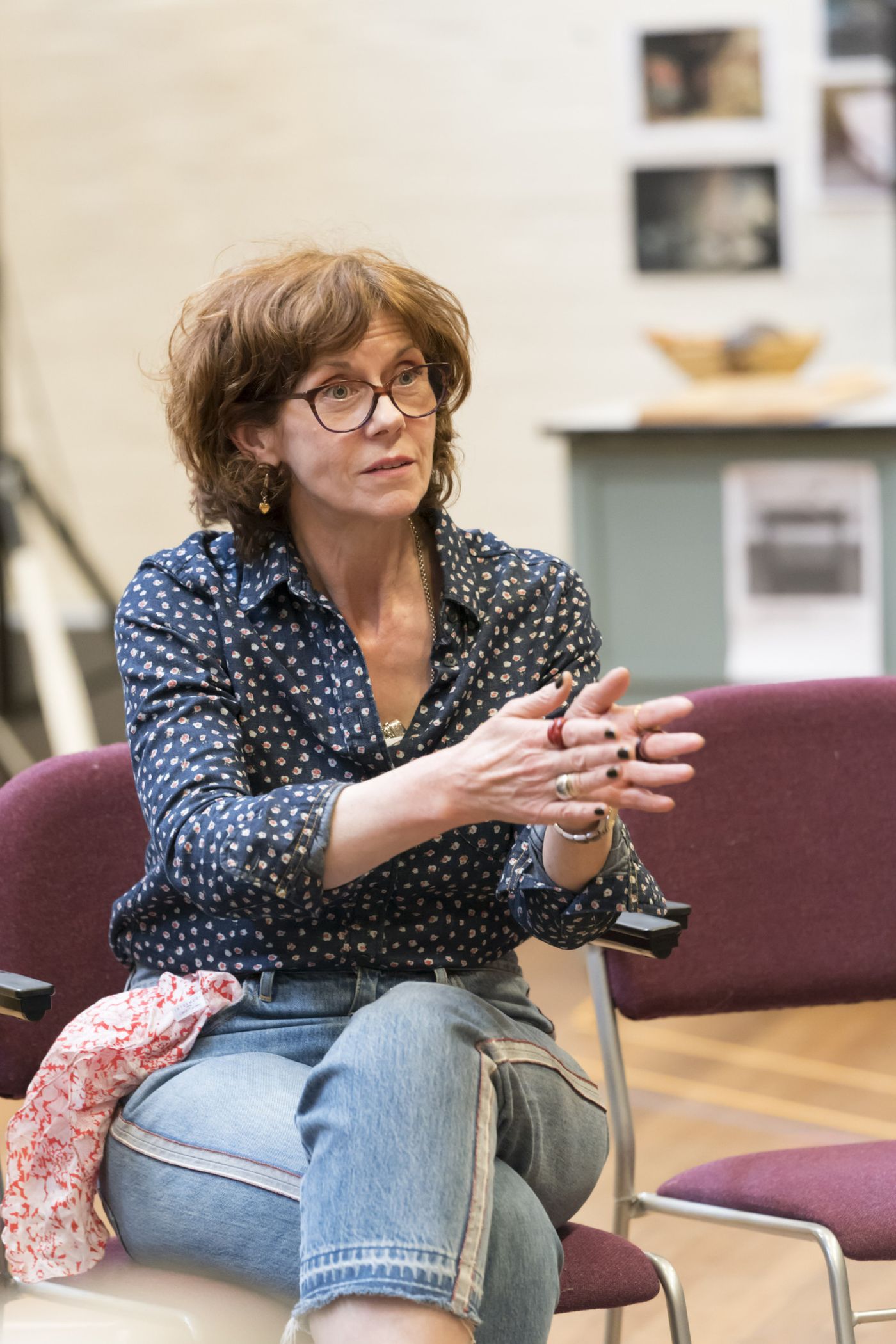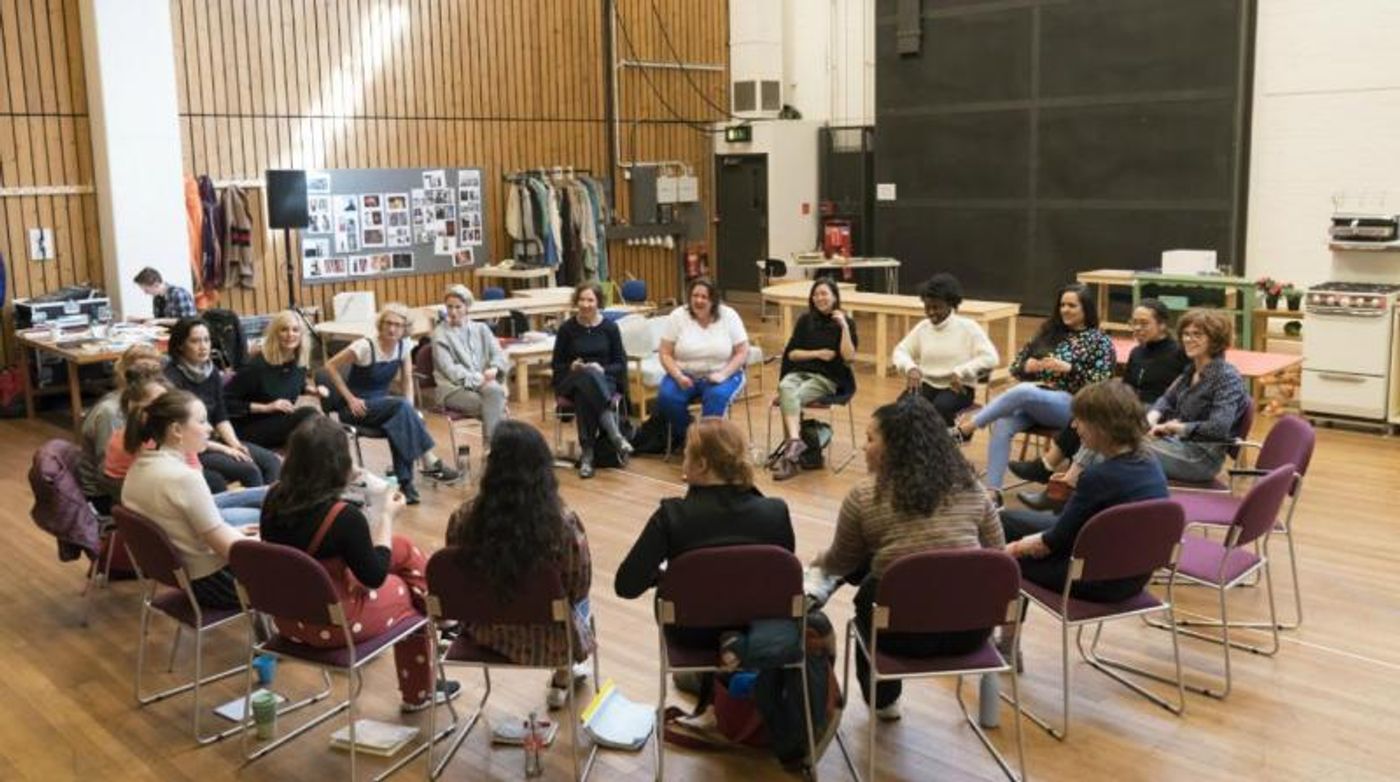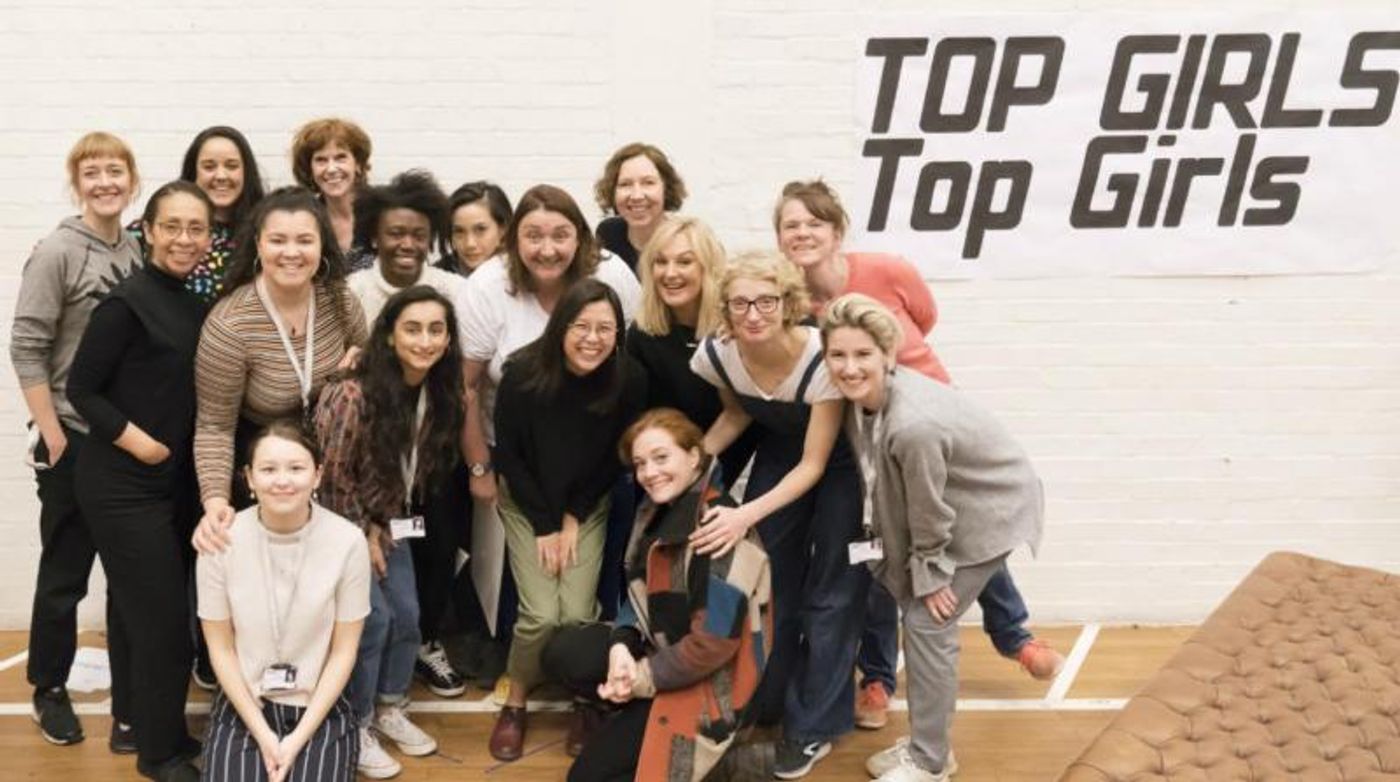Interview: Siobhan Redmond Talks TOP GIRLS

for Top Girls
For the first time in its illustrious history, the National Theatre will stage Top Girls. Lyndsey Turner's production features one of the largest casts to stage the show, "one singer one song, which almost no-one can ever afford to do".
Siobhan Redmond returns to the National to play Isabella Bird. Giving us an insight into her character and the real life person behind it, Siobhan also shares her excitement and joy for working in this all-female company.
What's one of your earliest memories of theatre?
My parents were both very keen on the theatre. My father eventually was a lecturer in English and Drama, and my mother had all the talent to enable her to be an actress. But she had to leave school at 14, it just wasn't a viable option for her at that time.
They took us to the theatre, to the cinema, to the ballet. I mean it's entirely their own fault that I ended up doing this really! And I would really get stuck in. I saw Dumbo and I had to be removed from the cinema, because I was on my seat saying, "Don't laugh at him because his ears are big".
I was never really able to accept that there was a line between me and my seat and what was going on in front of me.
So what was the path to you becoming an actor?
I always knew I wanted to act. But by the time I left school, my father had persuaded me that it was a better idea to go to university first.
He said, "You'll get the chance to play parts in student productions that you may not play for a very long time professionally". That and he also said, "You'll know that you have the right not to be bowled over by some nyaff in a leather jacket telling you he knows more about Shakespeare than you!"
So I went to St Andrews and did various student productions, and one of the people who came to see those was a writer called Liz Lochhead. She put a review together and then looked through all the Redmond's in the phone book and offered me a job on True Confessions.
I was lucky enough to have an Equity card by then, and I went on to the Old Vic Theatre School in Bristol, and from there I was offered a job by Michael Boyd at the Crucible in Sheffield.
Those early experiences really led to me being seen by a lot of people who'd go on to offer me work in the coming years. After working with Michael, I worked at Granada on a television review show called Alfresco with Emma Thompson, Hugh Laurie, Stephen Fry, Robbie Coltrane and Ben Elton.
While I was there, I got a job in a new detective show called Bulman, working with the delightful Don Henderson. We were the only two regulars, so I got to be his sort of youth opportunities person.
So at the time I knew I was meant to be starving in a garret, but I wasn't.

Speaking of screen work, you have a new project coming out soon...
Yes, I recently had the great fortune to be cast in an American television show: Queens of Mystery.
And the times they are a changing. This is a better time than it ever has been to be an actress who's not a kick in the pants off 60. Because gradually, people have begun to notice that much of the television audience is women my age. And we don't mind seeing ourselves; we quite like it actually.
That's what's also great about this production of Top Girls.
In what way?
The play normally requires doubling of characters and actors. But being able to do it at the National and with Lyndsey [Turner], we're having a full cast: one singer one song, which almost no-one can ever afford to do.
That means that there is an absolute wealth of female talent on that stage. Even in the scene that I'm in for the most part, we're the slightly older ones. And as you know, normally we're allowed in one at a time! It's great to be surrounded by all that experience, all that wisdom.
It's thrilling to be in a production which will have so many different women on stage.
Had you seen Top Girls before?
No, but I knew of it, because it's one of the great modern classics and a mold-breaking play which made people look differently at how theatre could be done.
Funnily enough when I was working on Queens of Mystery, one of the actresses was Selina Cadell who played Pope Joan in the original production. It was fascinating to chat to her and then read it knowing where the doubling happens. Because you can see where some of those parts dovetail and where there's an interesting overlap.

for Top Girls
Can you set up the story for us a bit?
So there are four sections in the play, and my scene is at the very beginning. It's set in the early 80's when it seemed that women could have it all, without paying any penalty.
Marlene is on her trajectory upwards and she's just been made the Managing Director of the Top Girls employment agency. And it's worth noting: she is the modern woman of the piece. But actually, she is nearly 40 years away from a modern audience (we pointed that out the other day).
In order to celebrate, she's hosting a dinner party for great women from history. I play Isabella Bird who was a Victorian traveler, there's Pope Joan, there's Patient Griselda, there's Dull Gret, and there is Lady Nijo.
During the course of our dinner, it becomes abundantly plain that although all these women were incredibly successful at a time when it might not have been expected, there's always a price to be paid.
And that's what takes Marlene into the rest of the play.
Were you familiar with Isabella Bird?
I'd only been vaguely aware of her before.
Isabella had quite a peripatetic childhood, her father was a clergyman and they moved place to place. And she suffered a great deal with her health particularly in her early life (she had a tumour on her spine which had to be removed). So she was one of these Victorian women who had to battle against her own body, when she was living the life of a regular Victorian woman of her age and class.
But the minute she could get away and travel, she was in great health. She had pain, but she had things to distract her from the pain, things she wanted to do. She was not cut out to be a Victorian clergyman's daughter, even though she was a very principled woman. She beat herself up a great deal, because she felt that her travels throughout her life were entirely selfish.
She was a great success in terms of her writing. She had been very ill at home and her father gave her the money to go with some cousins to the United States. She wrote letters back home, the stories of her travels, which then became published.
And she was the first female fellow of the Royal Geographical Society, she was a keen photographer during her time so she was then able to illustrate her journals.
What have you been working on in rehearsals this week?
One of the things that is distinctive about Caryl Churchill's writing is that she enables her characters to speak simultaneously, and that requires a great deal of work technically. You have to honour the marks of where the overlaps and echoes and duets are, without getting in the way of each other's dialogue.
We're at the point now where having learned our own lines, we're learning what other people are saying. Where you need to take a breath so that that word from this person rings out in the middle of what you're saying.
It's really thrilling to do and I haven't done anything like this for some time.
And this isn't your first time at the National, is it?

No. It's such a great privilege to get to work for companies like the National and the RSC, to play under their auspices.
And getting to work in the Lyttelton, which I've always loved and has always felt like quite an intimate space for me as an audience member. From the stage though, it looks much bigger. I'm intrigued to seeing how our overlapping dialogue copes with the acoustics in there.
It's lovely to return, because I've worked at the National once before. Ten years ago, I was in the Cottesloe which is now Dorfman, and I (well, my character) managed to make it to the interval. Here I am, ten years later in the Lyttelton just in the first scene!
In ten years' time, I really hope someone's going to hire me to walk on stage in the Olivier, say one line and leave!
Top Girls at the National Theatre, from 26 March 2019
Photo credit: Johan Persson
Videos

